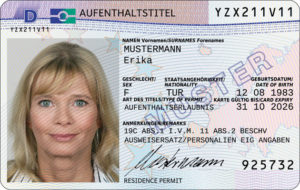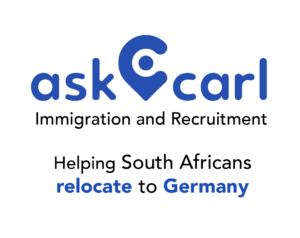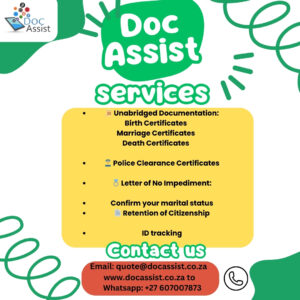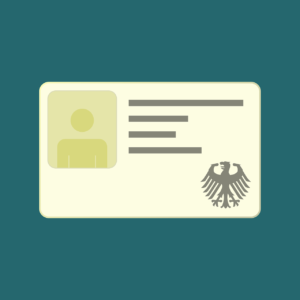Germany is a popular destination for immigrants from all over the world due to its strong economy and high standard of living. The country has a long history of immigration, with the first wave of immigrants arriving in the 1950s and 1960s to help rebuild the country.
Today, Germany is home to a diverse population of immigrants. In recent years, the country has seen an increase in refugees and asylum seekers, with over 1.5 million people seeking asylum in Germany since 2015.
The German government has implemented various policies and programs to manage immigration and integration, including language and job training programs for immigrants, as well as measures to combat discrimination and xenophobia. One of the most significant changes in recent years has been the introduction of the Skilled Immigration Act in 2020, which aims to attract highly skilled workers from outside the European Union to fill labour shortages in various industries.
Our “I want to work or live in Germany” page summarises all your options to legally come to Germany

I want to work or live in Germany
Important facts South African citizens need a visa to travel to Germany and a residence permit to stay longer than 90 days A visa allows you to enter the country, you apply for your visa at the German Embassy in South Africa. You must apply for the correct long-stay visa, this is linked to the residence permit you will apply for once you are in Germany. For a list of long-stay visas and their relevant information please view our long-stay visas page. After arriving in Germany, you need to register at the Foreigners Office (Ausländerbehörde) Thereafter you need to apply for a residence permit (Aufenhaltstitel or Aufenhaltserlaubnis), which
Visas
It is essential to obtain the appropriate visa before your departure. A visa is a legal requirement that allows foreigners to enter and stay in Germany for a limited duration.
Depending on your nationality, the purpose of your trip, and the length of stay, you may need to apply for a Schengen visa (Type C) or a national visa (Type D).
It is advisable to research the requirements and gather all the necessary documents well in advance. An incomplete application or missing documents could lead to a delay or rejection of your application. With the proper visa in hand, you can enjoy your visit to Germany with peace of mind and the ability to fully immerse yourself in the country’s culture and beauty.

Family Reunification Visa
“German citizens or citizens from non-EU countries who have an Aufenthaltserlaubnis (residence permit) or a Niederlassungserlaubnis (settlement permit) are allowed to bring their relatives to

List of Long Stay Visas
Long Term visas are seen as visits longer than 90 days and will typically be for work or study visits. If your application is approved,

List of Short stay Visas
According to the German Embassy in South Africa, “South African passport holders require a visa to enter Germany. It is important to note that if you

Reunification – Parents of third-country nationals
Moving to a new country is a wonderful opportunity to start a new life. The biggest hardship in my opinion is leaving your loved ones

Verpflichtungserklärung – Sponsoring someone’s visit
One of the requirements for both short-term and long-term (National) Schengen Visas is Proof of financial status and sufficient funds. When you want to sponsor

Visa application tips
We are not immigration agents, and your first point of contact should always be the German embassy or consulate in South Africa.Most of the information
Residence
The Residence Act is the primary legal framework for immigration in Germany. It sets out the conditions under which non-German citizens can enter and reside in the country. The act distinguishes between different types of visas, such as short-term and long-term visas, and regulates the rights and obligations of foreign residents, including their access to social benefits. There are two types of Residence permits in Germany. The one is an Aufenthaltserlaubnis/Temporary Residence and the other is a Niederlassungserlaubnis/permanent residence.
Legal Basis
- The German AufenthG (Gesetz über den Aufenthalt, die Erwerbstätigkeit und die Integration von Ausländern im Bundesgebiet ) can be found on the website of the Bundesministerium der Justiz.
- There is also an English version of the Act on Residence, Economic Activity and Integration of Foreigners in the Federal Territory

Residence in Germany
A Visa allows you to enter Germany, and stay for no more than 90 days in a 180-day cycle.If you want to stay in Germany for longer than 90 days, you will need to apply for the correct visa in your home country and once you are in Germany, apply for the subsequent residence permit (Aufenhaltstitel) at the competent Aliens Authority in Germany. There are two types of residence permits in Germany: Temporary – allows foreigners to stay in the Federal Republic of Germany for a longer period of time. Reasons for issuing a residence permit (Aufenthaltserlaubnis) are for example: Family reunification with German or foreign nationals for humanitarian reasons Purposes
Citizenship
Foreigners who wish to become German citizens must meet certain requirements, including a minimum period of residence in Germany, fluency in the German language, and knowledge of German culture and history. Applicants must also renounce their current citizenship, unless they are from an EU country or Switzerland. The naturalization process can take several years, and applicants must pass a citizenship test and demonstrate good conduct.
Overall, the immigration process in Germany can be complex and time-consuming. However, with careful planning and preparation, foreigners can successfully navigate the process and enjoy all that Germany has to offer.

Ways of obtaining German citizenship
Please note: Although the information on this website has been prepared with the utmost care, we cannot accept any responsibility for inaccuracies contained herein. Always refer to the official websites for up-to-date information. The German Cabinet approved the new legislation to allow Dual Citizenship. The new law comes into effect on 26 June 2024. This page will then be updated as wellHere is a link to the changes (in German). A summary of the proposed changes: Multiple citizenship will be allowed, there is no need to renounce your South African citizenship anymore. This also means you will have to apply for retention of your South African citizenship. If you meet the
Resources and Support Services
Germany offers various governmental assistance programs to immigrants to help them integrate into society. The Federal Office for Migration and Refugees (BAMF) provides language courses, vocational training, and job placement services to immigrants. The courses are offered in various languages, including German, English, and French. The BAMF also offers counselling services to immigrants on various topics, such as housing, education, and healthcare.
The Federal Ministry of Labour and Social Affairs (BMAS) also provides assistance to immigrants. The BMAS offers job placement services, vocational training, and financial assistance to immigrants who are unemployed or underemployed. The ministry also provides information on social benefits and pensions.
Make it in Germany is the portal of the Federal Government for skilled workers from abroad. Find information on jobs, visa & living in Germany!

Learning German
There are several approaches to learn German, all of which can help you achieve your language learning goals. You can opt for convenient online sites
Immigration Assistance
The following companies can assist with immigration.

Ask Carl
Our intuitive immigration software is FREE and guides you through every process. We also assist South Africans looking to emigrate to Germany with cost-effective, streamlined
Documentation
The following companies can assist with obtaining documentation.

Apostil
Get South African apostilles, police clearances, birth/marriage certificates, legalisations and much more quickly and efficiently through our legal service. We have helped thousands of people

Doc Assist
Embark on a hassle-free journey with our comprehensive document services. Whether you’re planning to travel, work abroad, or need vital documents, Doc Assist is here
























You must be logged in to post a comment.